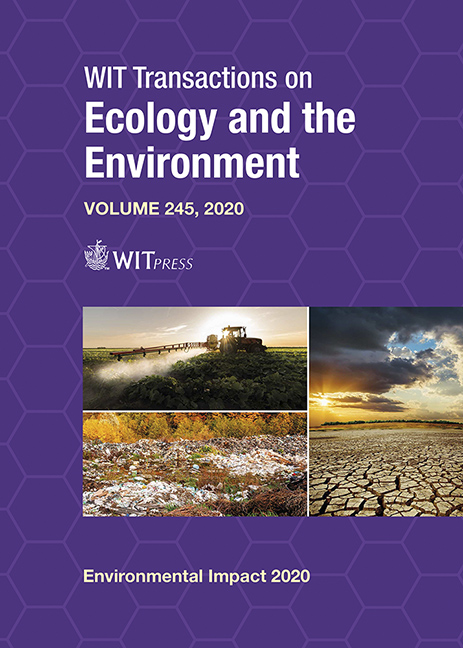PROTECTING THE ENVIRONMENT BY REDUCING FOOD LOSS AND WASTE ACROSS THE FOOD SUPPLY CHAIN
Price
Free (open access)
Transaction
Volume
245
Pages
9
Page Range
31 - 39
Published
2020
Paper DOI
10.2495/EID200041
Copyright
WIT Press
Author(s)
SHAHLA M. WUNDERLICH
Abstract
The Food and Agriculture Organization of the United Nations has reported that the estimated global food loss and waste (FLW) is significant and varies among different food products. The total loss is up to 40–50% for root crops and up to 30% for cereals. These losses happen throughout the food supply chain (FSC) including during the agricultural production, transfer, and finally during the use by consumers. Most of the food loss occurs during the initial stages of the food production while most of the waste occurs in the final stages of FSC by retailers and consumers. The high rates of FLW globally along the FSC contribute to the depletion of the natural resources and the rise in greenhouse gas emissions which ultimately impact the environment adversely. According to the 2017 Natural Resource Defense Council report in the United States (US), food and agriculture use a significant amount of natural resources such as land (half), water (67%) and energy up to 16%. The purpose of this paper is to highlight the importance of this problem and the potential impact on the natural resources which may compromise the environment and world bio-network. Although the FLW can happen in any stage of FSC, many reports suggest the first and last stages of the FSC as the most significant contributors of FLW and environmental resource depletion. It has therefore, become clear that causes of global FLW throughout the FSC could be due to many factors. Environmental implications, accessible food for all and sustainability must be considered when the issue of FLW is examined. There have been many studies which address this issue which ultimately affects both the environment and the sustainability of the food supply. The green food supply chain which is aimed at integrating environmentally friendly and sustainable food production practices is becoming a popular way to address this issue in the US.
Keywords
food loss, food waste, environment, consumer, food supply chain (FSC), green food supply chain (GFSC), greenhouse gas, carbon footprint, sustainability





